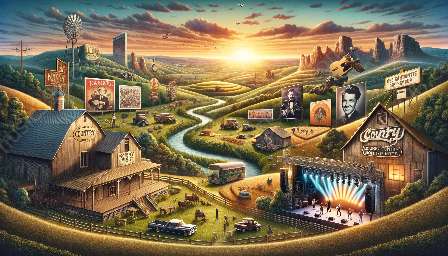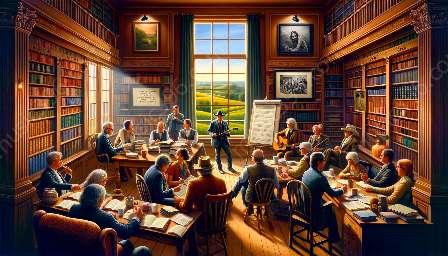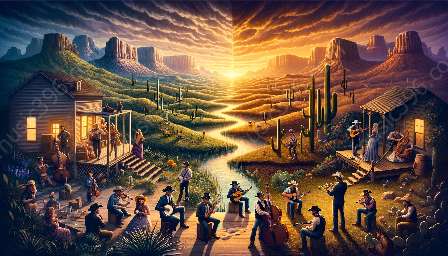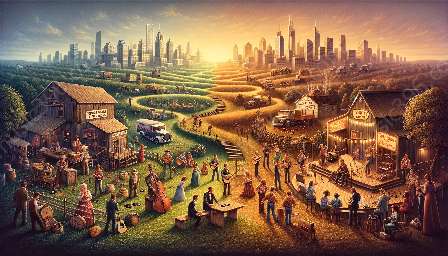Country music holds a cherished place in music history, embodying the essence of American culture and tradition. The roots of country music run deep, stemming from a fusion of various musical influences and cultures. This exploration delves into the historical and cultural origins of country music, examining its evolution and development over the years.
The Beginnings of Country Music
The history of country music can be traced back to the early days of America when immigrants brought their musical traditions to the new world. The blend of European folk music, African rhythms, and Appalachian melodies formed the groundwork for what would become country music. The songs and stories of these early settlers reflected their struggles, joys, and experiences, laying the foundation for the genre's emotionally charged and relatable themes.
Influences and Elements
Country music drew inspiration from a wide range of musical styles, including gospel, blues, and folk. These influences contributed to the distinctive sound and storytelling nature of the genre. The authenticity and raw emotion woven into country music resonated with audiences, forging a deep connection that has endured through the years.
Evolution and Development
As the United States underwent significant social and cultural changes, so did country music. The 1920s marked the commercialization of country music, with the introduction of recording technology leading to its widespread popularity. Pioneering artists such as the Carter Family and Jimmie Rodgers helped shape the genre, ushering in a new era of country music that reflected the evolving American experience.
Country Music's Significance
Country music became a symbol of resilience, community, and storytelling, capturing the essence of rural life and the human experience. The evolution of country music mirrored the shifting landscapes of America, evolving to reflect the hopes, struggles, and triumphs of its people.
Contemporary Country Music
Over time, country music continued to evolve, blending with other genres and embracing modern production techniques. Today, country music remains a vibrant and diverse genre, with artists pushing the boundaries of traditional sound while honoring its historical and cultural roots.
Conclusion
The historical and cultural origins of country music are a testament to the genre's enduring appeal and significance. From its humble beginnings to its evolution into a global phenomenon, country music continues to resonate with audiences around the world, serving as a musical tapestry that reflects the spirit of America.























